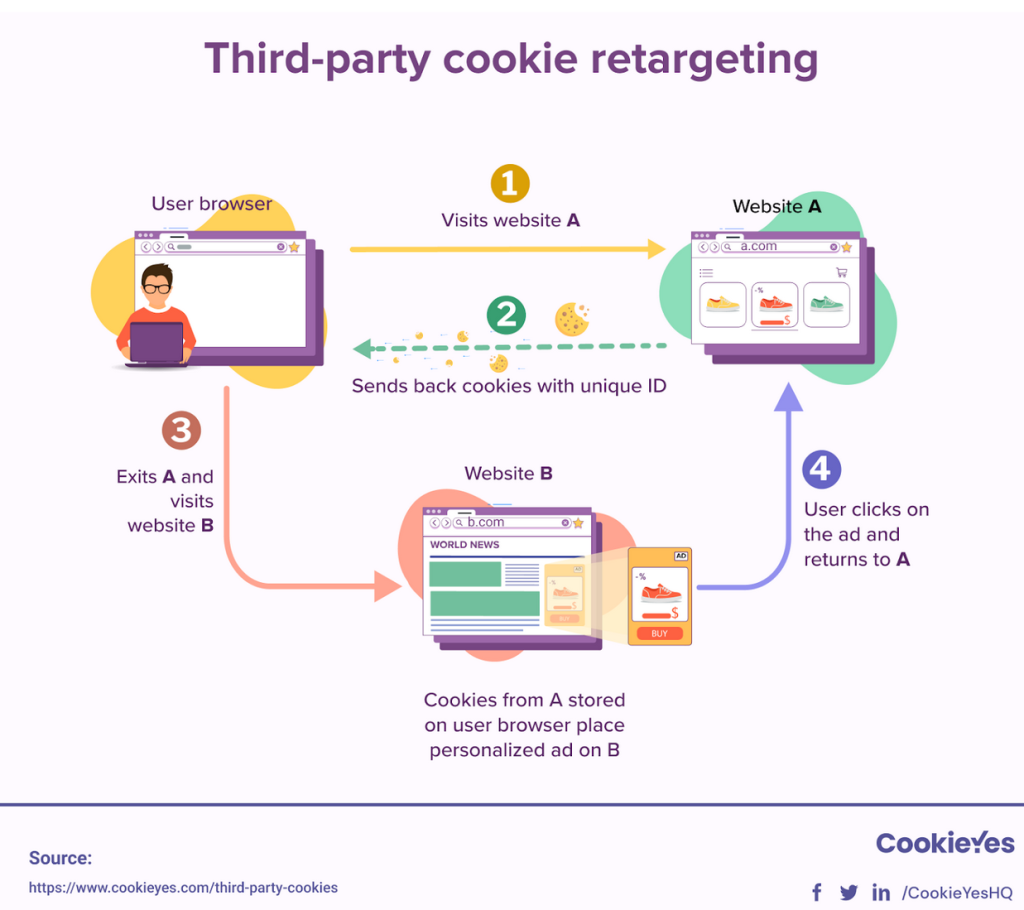Cookieless world, Privacy & Disruption
Amey Mahajan | June 23, 2022
Personalized ads, digital behavior and tracking users’ data for targeted marketing has been a major trend in the last few users. These practices have been a major contributor to growth of the marketing and retail industry. (ICSD 2022) suggests that purchasing behavior of nearly 44% of consumers is driven by ads. These ads and digital marketing techniques are heavily based on 3rd-party cookie sharing. By 2023 though, Google has planned to remove the 3rd party cookie support on Chrome (nd 2022) to support user privacy like Firefox and Apple.

The decision taken by a platform that enjoys the largest user base who are also the potential customers for businesses definitely has repercussions and consequences across domains that needs to be studied carefully. The discussion and analysis should be done not just through the lens of user privacy but also its far-fetched impacts on the overall marketing strategies and economic impacts on smaller businesses who don’t have a huge chunk of 1st party cookies (that are still going to remain).
User privacy is the topmost concern in this ever growing digital market for all companies. Until recent times, topics like data collection practices, understanding how collected data is packaged and shared across platforms and the potential harms of such openly used techniques were rarely discussed. With an increased awareness around multiple dimensions of privacy and legitimate practices that need to be enforced, along with stringent regulations like GDPR and CCPA, companies like Google have realized the importance of keeping customer interests first. Moreover, studies have shown that “81% people say that the potential risks they face because of data collection outweigh the benefits” (David 2022). It is imperative that steps need to be taken in the right direction to make people feel comfortable during their digital footprint expansion process.

Ads generated from these 3rd party cookies drive a lot of revenue for small and big businesses because consumer behavior techniques and the overall business model is largely dependent on it. Given that nearly 81% of companies depend on this technique to drive their business (RetailWire 2022), it is an undeniable fact that there is going to be a huge disruption after the world goes “cookie-less”. This long-lasting impact needs to be studied, analyzed and alternative techniques must be introduced to soften the blow. Apart from the retail industry, another sector to be worst-hit from this decision is definitely the marketing industry (Caccavale 2021). Revenues generated are directly proportional to the techniques used to capture customer behavior and come up with metrics to analyze and strategize for targeted marketing campaigns. Given that the foundational technique itself is radically changing, it is undeniable that this sector will be hit and should certainly gear up for it. Various studies and articles have started publishing about techniques that need to be used by businesses who heavily leverage 3rd party cookies for their strategies.
In today’s day and age, technological advancements play a pivotal role in reaching and analyzing customers and drive businesses based on that analysis. With the landscape changing so quickly and with privacy being at the forefront in driving these changes, exhaustive research needs to be done as to why these proposed changes are important, who they are going to impact and what is the scale of that impact.
References:
Caccavale, Michael. “Council Post: Bye Bye, Third-Party Cookies.” Forbes, Forbes Magazine, 13 Apr. 2021, https://www.forbes.com/sites/forbesagencycouncil/2021/04/13/bye-bye-third-party-cookies/?sh=66d66d3a3788.
International Centre for Settlement of Investment Disputes. (n.d.). Retrieved June 23, 2022, from https://icsid.worldbank.org/
3 steps for marketers to prepare for a cookieless world. Gartner. (n.d.). Retrieved June 23, 2022, from https://www.gartner.com/en/marketing/insights/articles/three-steps-for-marketers-to-prepare-for-a-cookieless-world
Google ending third-party cookies in Chrome. (n.d.). Retrieved June 23, 2022, from https://www.cookiebot.com/en/google-third-party-cookies/
Will retailers be ready when the third-party cookies crumble? RetailWire. (n.d.). Retrieved June 23, 2022, from https://retailwire.com/discussion/will-retailers-be-ready-when-the-third-party-cookies-crumble/#:~:text=Eighty%2Done%20percent%20of%20companies,State%20of%20Customer%20Engagement%20Report.%E2%80%9D
Temkin, D. (2021, March 3). Charting a course towards a more privacy-first web. Google. Retrieved June 23, 2022, from https://blog.google/products/ads-commerce/a-more-privacy-first-web/
